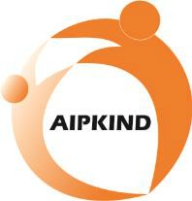The Behavior of Breastfeeding Mothers in Providing Exclusive Breastfeeding during the Covid-19 Pandemic in Surabaya (mix method)
Abstract
The benefits of exclusive breastfeeding include increasing the baby's immune system, especially during the current Covid-19 pandemic. The purpose of this study was to determine the behavior and self-efficacy of breastfeeding mothers in providing exclusive breastfeeding and to determine the supporting and inhibiting factors in providing exclusive breastfeeding. The research method used is a mix method with a concurrent embedded strategy. The first stage is carried out with a quantitative method to determine the behavior and self-efficacy of breastfeeding mothers during the Covid-19 pandemic. The second stage is a qualitative method to determine the supporting factors, barriers to breastfeeding practices during the Covid-19 Pandemic. The population and samples in this study were breastfeeding mothers, midwives and breast milk counselors who were taken purposively as samples. The results of the study on knowledge that the p value of 0.001 (<0.05) means that knowledge affects the behavior of mothers in giving exclusive breastfeeding. On the attitude of the analysis results obtained p value of 0.005 (<0.05) which means that attitudes affect the behavior of mothers in exclusive breastfeeding. Then from the breastfeeding pattern, the results of the p value analysis were 0.001 (<0.05), which means that the breastfeeding pattern affects the mother's behavior in giving exclusive breastfeeding. At the qualitative stage, it was found that the supporting factors for exclusive breastfeeding include the support of family and health workers, high knowledge and ease of accessing information. While the inhibiting factors are wrong perceptions about breastfeeding, there is no intention and inappropriate cultural practices about breastfeeding.
Keywords
Full Text:
PDFReferences
Yuliarti, Keajaiban ASI. Yogyakarta: Andi Publishing, 2010.
Wahyuningsih and Machmudah, Dukungan Suami Dalam Pemberian ASI Eksklusif. Jakarta: Keperawatan Maternitas, 2013. [Online]. Available: https://jurnal.unimus.ac.id/index.php/JKMat/article/download/995/1044
H Widuri, Cara Mengelola ASI Eksklusif Bagi Ibu Bekerja. Jakarta: Gosyen Publishing, 2013.
A. Yusrina and S. D. Rukmini, “Faktor Yang Mempengaruhi Niat Ibu Memberikan ASI Eksklusif Di Kelurahan Magersari, SIDOARJO,” Jurnal Promkes, vol. 4, no. 1, pp. 11–21, 2016.
P Simbolon, Pengaruh Dukungan Keluarga Terhadap Pemberian ASI Eksklusif di Wilayah Kerja Puskesmas Gurilla Pematangsiantar. Sumatera Utara: Universitas Sumatera Utara, 2011. [Online]. Available:http://repository.usu.ac.id/handle/123456789/31289
A. Ramie, Y. Afiyanti, and H. Pujasari, “Self Control And Self Efficacy Increase Mother’s Birth Labor Satisfaction,” Jurnal NERS, vol. 9, no. 1, p. 97, Jan. 2017, doi: 10.20473/jn.v9i1.3234.
Badan Pusat Statistik, “Profil KIA 2020,” 2020.
N. Yulita, S. Juwita, and A. Febriani, “Perilaku Ibu Nifas Dalam Meningkatkan Produksi ASI Postpartum Mother’s Behavior in Increasing ASI Production,” 2020.
R. Suryaman, E. Girsang, and S. Mulyani, “Hubungan Pengetahuan Dengan Kecemasan Ibu Dalam Pemberian ASI Pada Bayi Dimasa Pandemi Covid-19,” Jurnal Ilmu Kesehatan, vol. 9, no. 2, pp. 1–6, 2021.
Fabiola Vania Felicia, “Manajemen Laktasi di Masa Pandemi Covid-19,” Jurnal CDK, vol. 47, no. 9, pp. 691–693, 2020.
T. F. Fadilah and D. Setiawati, “Aspek Imunologi Air Susu Ibu Dan Covid-19,” Jurnal Penelitian Dan Karya Ilmiah Lembaga Penelitian Universitas Trisakti, vol. 6, no. 1, p. 42, Jan. 2021, doi: 10.25105/pdk.v6i1.8629.
R. Suryaman, Girsang Elpinaria, and Mulyani Siti, “Hubungan Pengetahuan Dengan Kecemasan Ibu Dalam Pemberian ASI Pada zBayi Di Masa Pandemi Covid-19,” Jurnal Ilmu Kesehatan, vol. 9, no. 2, pp. 116–121, 2021.
N. N. Khayati and M. Kep, “Breastfeeding pada masa Pandemi Covid-19,” 2021.
R. Rochmawati et al., “Meningkatkan Kapasitas Ibu Menyusui Melalui Penyuluhan Kesehatan Mengenai Pemberian ASI Eksklusif Selama Masa Pandemi COVID-19,” Sasambo: Jurnal Abdimas (Journal of Community Service), vol. 3, no. 2, pp. 76–82, Jun. 2021, doi: 10.36312/sasambo.v3i2.427.
A. T. Kusumaningrum and P. I. A. Sari, “Faktor Faktor Yang Mempengaruhi Pola Menyusui Pada Masa Pandemi Covid-19,” Jurnal Ilmiah Media Husada, vol. 10, no. 1, pp. 74–81, 2021.
N. Jannah and Y. E. Muliatie, “Sosialisasi Manajemen Laktasi Pada Masa Pandemi Di Desa Pucung Kecamatan Balongpanggang Gresik,” 2020.
M. G. Safitri and A. F. Citra, “Perceived Social Support Dan Breasfeeding Self Efficacy Pada Ibu Menyusui ASI Eksklusif,” Jurnal Psikologi, vol. 12, no. 2, pp. 108–119, 2019, doi: 10.35760/psi.2019.v12i2.2436.
D. Rahayu, A. Keperawatan, and D. H. Kediri, “Hubungan Breastfeeding Self Efficacy Dengan Keberhasilan Pemberian ASI Eksklusif,” Jurnal Ilmu Kesehatan, vol. 7, no. 1, 2018.
S. Rochana, “Self Efficay Ibu Menyusui Pada Ibu Primipara,” Media Berbagi Keperawatan, vol. 2, no. 3, pp. 1–3, 2019, doi: 10.5294/aqui.2014.14.3.5.
A. J. Cemara et al., “Dukungan Sosial Tentang Efikasi Diri Menyusui Pada Ibu Nifas.”
A. Alim, S. Samman, and M. B, “Studi Kualitatif: Perilaku Ibu terhadap Pemberian ASI Eksklusif di Puskesmas Banemo, Kabupaten Halmahera Tengah,” Media Penelitian dan Pengembangan Kesehatan, vol. 30, no. 2, pp. 163–182, Sep. 2020, doi: 10.22435/mpk.v30i2.2397.
Badriul Hegar, “Mengapa Ibu Harus Menyusui?,” Kompas, Jakarta, Aug. 04, 2012. [Online]. Available: http://www.idai.or.id/artikel/seputar-kesehatan-anak/mengapa-ibu-harus-menyusui-2
Hadajati, Mengapa Seorang Ibu Harus Menyusui?, 1st ed. Jogjakarta: Flashbook, 2012.
DOI: https://doi.org/10.31983/jkb.v12i1.7700
Article Metrics
Refbacks
- There are currently no refbacks.
Abstracted/Indexed by:
Jurnal Kebidanan by http://ejournal.poltekkes-smg.ac.id/ojs/index.php/jurkeb is licensed under a Creative Commons Attribution-ShareAlike 4.0 International License.
View My Stats aw
.png)
.png)




.png)





